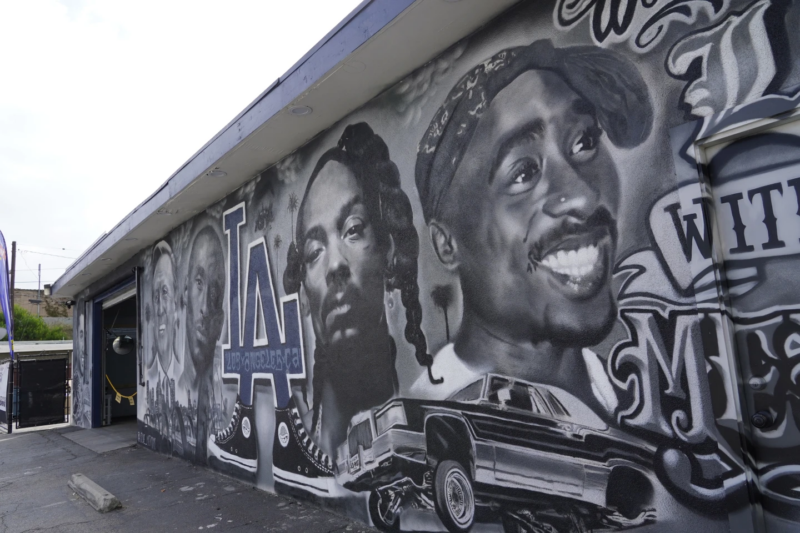Arrest in Tupac Shakur killing stemmed from Biggie Smalls death investigation
Share
Explore Our Galleries
Breaking News!
Today's news and culture by Black and other reporters in the Black and mainstream media.
Ways to Support ABHM?
By Rio Yamat and Ken Ritter, Associated Press

LAS VEGAS (AP) — The first arrest in the 1996 slaying of Tupac Shakur had its roots in the investigation of the killing of Biggie Smalls.
The shooting deaths of the two hip-hop luminaries and rivals — Shakur in Las Vegas and Smalls in Los Angeles six months later — have always been culturally inseparable, and one man, Duane Keffe D. Davis, found himself involved in both investigations.
On Friday, Davis was arrested and charged with murder, with prosecutors saying he ordered and masterminded the Shakur killing.
Now retired Los Angeles police detective Greg Kading was assigned to investigate the slaying of Smalls — whose legal name was Christopher Wallace — and in 2009 interviewed Davis as a person of interest in the case. Davis had been at the party at the Peterson Automotive Museum that Wallace had just left when he was shot.
Kading had helped build a federal drug case against Davis to get leverage to compel him to talk to Los Angeles police, who to date have made no arrests in the Wallace case.
“He confesses to his involvement in the Tupac Shakur case, he gives all the details of how he and his co-conspirators killed Tupac,” Kading recalled in an interview Friday with The Associated Press.
Davis, who had immunity for what he said in his police interview but not what he said outside it, went on to divulge many of the same details in documentaries, on podcasts and in a tell-all 2019 memoir that would give new life to the Las Vegas police probe and help lead to his grand jury indictment.
“He has essentially talked himself right into jail,” Kading said.
There’s more to the story. Click here to read more.
This still happens today. Click here to read more about modern acts of violence in the hip-hop community.
Read more Breaking News.











Comments Are Welcome
Note: We moderate submissions in order to create a space for meaningful dialogue, a space where museum visitors – adults and youth –– can exchange informed, thoughtful, and relevant comments that add value to our exhibits.
Racial slurs, personal attacks, obscenity, profanity, and SHOUTING do not meet the above standard. Such comments are posted in the exhibit Hateful Speech. Commercial promotions, impersonations, and incoherent comments likewise fail to meet our goals, so will not be posted. Submissions longer than 120 words will be shortened.
See our full Comments Policy here.